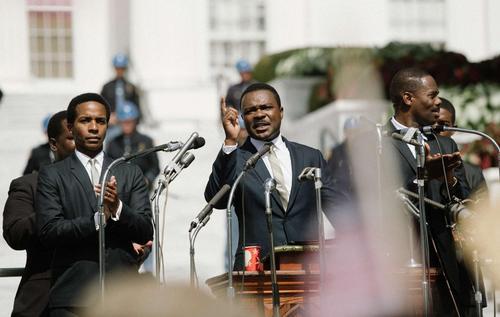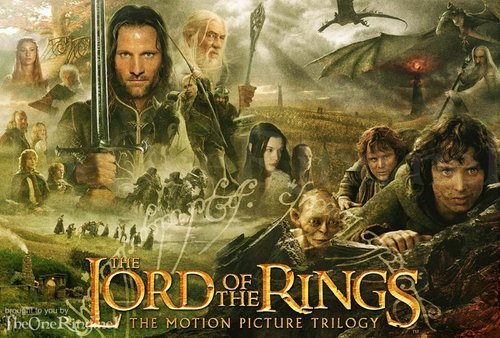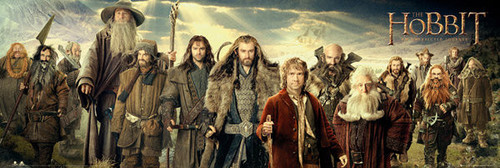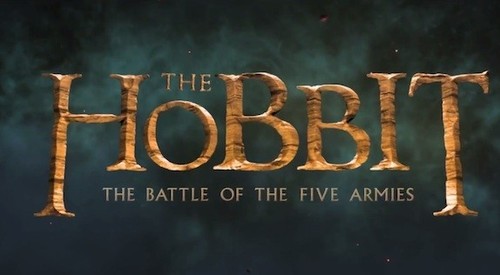#show business
Many casual movie fans don’t really understand how movies get made from a business perspective. I’ve touched on the thinking of movie studios and executives in my last twoposts, but I want to look at a recent example of what makes the business side of making movies (and television series) so complex.

Have you ever read a book (or even a comic) and thought to yourself, “This would be a great movie!”? One of my personal favorites and the story I have been waiting to see on the screen was the legendary fantasy series known as The Wheel of Time written by Robert Jordan until his death in 2007. Fellow fantasy author Brandon Sanderson took Jordan’s story outline and sample chapters he had been working on and finished the final three books finishing the series in 2013 more than twenty years after the first book in the series (of fourteen books) was published. It’s an amazing and epic story with memorable characters and and a plot so thick with different storylines it makes Game of Thrones look like a children’s book. I started reading the books in high school and I have looked forward to some adventurous movie studio taking on the job of turning the books into films. And in the era where Game of Thrones is a huge success and other studios are looking for the next big thing to copy a successful show, The Wheel of Times is a great choice.
When a book (or a stage play/musical, life story, magazine article, etc.) is popular enough for movie and television companies to get interested in adapting them, they have to purchase the rights to the source material. This is typically referred to as buying the “option.” There is no guarantee that the studio will do anything with it, but they pay for the rights and no other studio can develop those stories into films or TV shows without their permission (and probably paying a premium price for the privilege). Most of these contracts come with an expiration date where the rights revert back to the original author on a given date if the studio doesn’t meet it’s obligations. That situation leads us to my reason for writing about this today.
WARNING: Do not watch the above clip if you value your time and/or sanity.
Fans of The Wheel of Time were surprised to wake up on the morning of February 9th to learn that a TV pilot of the series had aired overnight on the cable channel FXX with no fanfare, advertising, or advance notice of any kind. The pilot was shot, edited, and “special effects” were added in just three weeks. The result is, quite simply, a freaking disaster. The pilot was made by Red Eagle Entertainment without the knowledge or approval of Robert Jordan’s wife or estate. Red Eagle rushed the pilot into production to try to retain the rights to The Wheel of Time which were set to expire on February 11th.
Complicating things even further is the fact that Red Eagle didn’t have the rights to The Wheel of time itself. Universal holds those rights and Red Eagle’s agreement to develop the series was with Universal and not with Jordan’s estate. This is a desperate attempt to keep the rights to a potentially lucrative franchise by a company that is clearly in over its head. As Vox’s Todd VanDerWerff wrote the other day, it’s a sad and messy situation. It’s also an example of how complicated it can be to get these projects made.

Another example is the movie Selma which portrayed the life of Dr. Martin Luther King, Jr. but the filmmakers didn’t have the rights to any of his speeches because they had already been optioned to another studio. So the screenplay had to write dialog that was similar to the speeches Dr. King actually gave without using any of the actual lines that many remember.
As much as we may, as the consumer, wish to have our favorite books or plays turned into movies with relative speed and good quality, the process of making a film can often be much more complicated. Plus, the extra time or compromises required to get a film or TV show produced can suck the life out of it as evidenced by the Wheel of Time pilot. Sometimes projects sit on a shelf for years or the option is sold several times before a film is actually made, as is the case of Into The Woods where the film version took more than 25 years to finally make it to the big screen.

It’s helpful to be reminded that while movie and television studios exist to entertain us, many are also huge multi-national corporations where the primary concern is whether a film or television show will be good for business. What Red Eagle Entertainment tried to do with their awful Wheel of Time TV pilot was obviously a business decision and not a creative one. But the damage could already be done on that front.
It’s unclear if the rushed pilot even satisfies the terms of the contract and Robert Jordan’s widow seems very upset by the process. If the situation is resolved and the rights return to Jordan’s estate, I fear that this bonehead move will mean that fans of the series may end up waiting for much longer for the story of Rand al'Thor and his friends to begin production, if it ever happens. But as Bob Sugar put it, “It’s not ‘show friends’ it’s 'show business.’"
-Phil
I wrote a couple of weeks ago about movie franchises and how they can be awesome if done right or terrible if done wrong. Today I want to expand on that theme and talk about some other trends that studios have been using to try to cash in.

The first trend is the reboot, which has a spotty track record. There are some franchises that have been rebooted with much success and critical acclaim. The ones that jump immediately to mind are The Dark Knight trilogy reboot of the Batman franchise and the J.J. Abrams Star Trek movies. Both of these reboots took well known and well traveled characters and storylines and breathed new life into them which led to commercial and critical success. However, there are plenty of reboots that fail to achieve the success of their predecessors, both at the box office and from the critics.

Things get even more insane when franchises get rebooted multiple times. The Spiderman franchise had some success with Tobey Maguire as Peter Parker and then the reboot did pretty well with Andrew Garfield. Now there are rumors that Spiderman will be rebooted yet again with another new star. James Bond has been re-cast so many times I’ve lost count and, other than the recent Daniel Craig movies, it hasn’t been a boost to the quality or success of the franchise. Hollywood will try to squeeze blood out of a stone and every last dollar out of a potentially lucrative franchise.

The second trend in Hollywood is the remake, which is slightly different than the reboot. A remake is when a well-known film is copied as the framework for another film but many of the settings, characters, and plot points are changed or updated. A recent example of this is the remake of the 1982 classic musical movie Annie, which was (quite unnecessarily) remade in 2014 with a new plot, new characters, and several new songs.

Remakes can sometimes be great. Ocean’s Eleven is a remake of a “rat pack” film from the 60’s and it’s one that I enjoy considerably. The Coen Brothers remake of True Grit is another that I thought was well done and added a new dimension to the John Wayne starring original. But the remakes that match or exceed the original films they are based on are rare, and too often they lose what made the original films so special and loved.

The last trend I’m going to talk about today, and the one that I really can’t stand, is the trend towards increasingly absurd adaptations. It’s not uncommon for TV shows to be adapted to films, and sometimes with a lot of success. Batman was a television show first. 21 Jump Street was a television show first. There would have been no Serenity without the television show Firefly. And of course the wonderful films of the Monty Python comedy troupe would not have been possible without the television success of Monty Python’s Flying Circus. There have been plenty of duds too, but it’s not the worst thing that Hollywood has done.

But the trend is spiraling downward recently with more and more absurd adaptations. Disney turned a relatively popular theme park attraction into the Pirates of the Caribbean franchise, which is sadly still continuing long past it’s expiration date. Video games have been adapted into several films, none of which were as good or as popular as the games they were based on. In recent years, sanity has been stretched to the point where board games like Battleship, Monopoly, Candy Land, and the Ouija Board have been adapted into films or are at some point in the development process. I’m just waiting on movie studios to adapt crappy television commercials or cell phone games into movies. It’s going to happen.
It’s hard to generalize and say that reboots, remakes, and adaptations are a good thing or a bad thing. When done with care and craft they can be great to watch and successful financially. However, as I said in part one of my thoughts on movie franchises, I think that the lack of creativity and over-reliance on proven commodities is one of the reasons that people aren’t going to the movies as often. Plus there is more competition for our time and money with the increased quality of television and online entertainment. Angela will have more thoughts on that in the next few days.
One of my friends commented that there seems to be a wealth of huge blockbuster franchises and an explosion of low budget independent films but the “middle class” movies are getting squeezed out. I don’t have exact figures, but my initial reaction is that he’s on to something. I know studio executives want to try to minimize risk and maximize profits by creating films that can be cross-marketed and have a wealth of merchandising opportunities, but the primary reason for making a movie should be because it’s a good movie. When movie studios figure that out, maybe they will see the business grow.
While there are still some studios that focus on making quality stand alone films, the obsession in Hollywood in recent decades has been building successful and insanely profitable movie franchises. However, finding or building the next great movie franchise has reached a peak in the last few years and it’s what many studios seem to prioritize when it comes to deciding what movies get made.
Sometimes it works out and they have a huge new franchise that makes the studio millions for years to come. Sometimes it fails miserably and the studio loses a ton of money and is stuck with the rights to a series that they can’t do anything with.

Franchises have become the driving force in a lot of major movie studios, but it’s not a new phenomenon. James Bond, Rocky, Star Wars, Star Trek, Indiana Jones, Superman, Planet of the Apes, and a host of horror movie franchises all started more than 30 years ago and almost all of them are great. Movie studios used to take great movies and use their success and popularity to turn them into franchises. Now the studios are trying to manufacture a franchise before the first film has even been released.

When everything works out, it’s great and we as the viewer get to enjoy a great series like Harry Potter or The Hunger Games. But for every hit there is at least one franchise that never seems to get off the ground or drag on too long with stories that amount to “we’ll do the same thing we did in the last movie but in a different place.”

What got me thinking about this was the most recent film in the Hobbit series unimaginatively titled “The Hobbit: The Battle of the Five Armies.” (Spoiler alert: there are five armies in it.) I am a huge Lord of the Rings fan, both of the books and the movies, and I was excited to hear that first Guillermo Del Toro and then Peter Jackson were attached to direct.

The Hobbit is a relatively short book and I thought it was going to be interesting when they announced that the film was going to be split into two movies. Then after they were well into production it was announced that the story would be split into three movies and additional material not in the book would be added to “enhance” the story.

I enjoyed the first two Hobbit movies, although they were not as good as the Lord of the Rings films. In fairness, that’s a very high bar to reach so it’s understandable. The Hobbit: Battle of the Five Armies was pretty good and entertaining, but there is very little story to go along with a lot of action. Instead of making two really good films, they decided to stretch the story into three pretty average films just because people like me were pretty much guaranteed to show up and buy tickets for anything they put out.

My point in writing all of this is not to decry the idea of franchises, but rather to express a hope that they will get better. As I said earlier, the way franchises should be built is by focusing on making great movies and then capitalizing when those movies are successful. With movie ticket sales at their lowest level since 1995 and a plethora of other options for entertainment, it may be time for studios to start focusing on the quality of their individual films rather than the potential to turn one film into a dozen.
If the movies get better, people will go to see them and the studios will be successful financially. That’s a win/win situation for moviegoers and filmmakers. Hopefully the lessons of recent years will encourage Hollywood to focus on quality and not double down on trying to squeeze even more dollars out of a few more Transformers or Fast and Furious sequels. Time will tell.
-Phil
“Insider Tip about Pre-Sale Tickets… Yes they are usually Discounted… And often merely allow you to skip the box office line. But for the Producers/venues and promoters of events they are better than Antacids… When you put on an event you are laying hundreds or thousands of your own dollars on the line and a few hundred hours of your time and everyone else in the cast and crew’s time as well… That anxiety eats a hole in your gut until about half way through the event when you find out if you broke even or not. Until then you are distracted, anxious and sick to your stomach. Ulcers are common among "Show People”
High Presale Numbers let the promoter know in advance whether they stand a chance at breaking even. Whether their Event will be a success or not. They allow you to take a deep breath, Eat without getting a tummy ache and speak to people without being irritable.
If you would rather pay full price at the door because you want to support the artists/venues etc that bring you such amazing Live entertainment… Feel more than welcome to pay the difference in the ticket price when you get there… Donate the money to the band/actors etc… Or save it to buy Merchandise from the performers and venue.“
-Scary Pete
Ruth Darby@rufusroughcut7 feb
“Actors and prostitutes are essentially the same thing.” Rupert Everett, I do love you. @lbc973@mrjamesob

